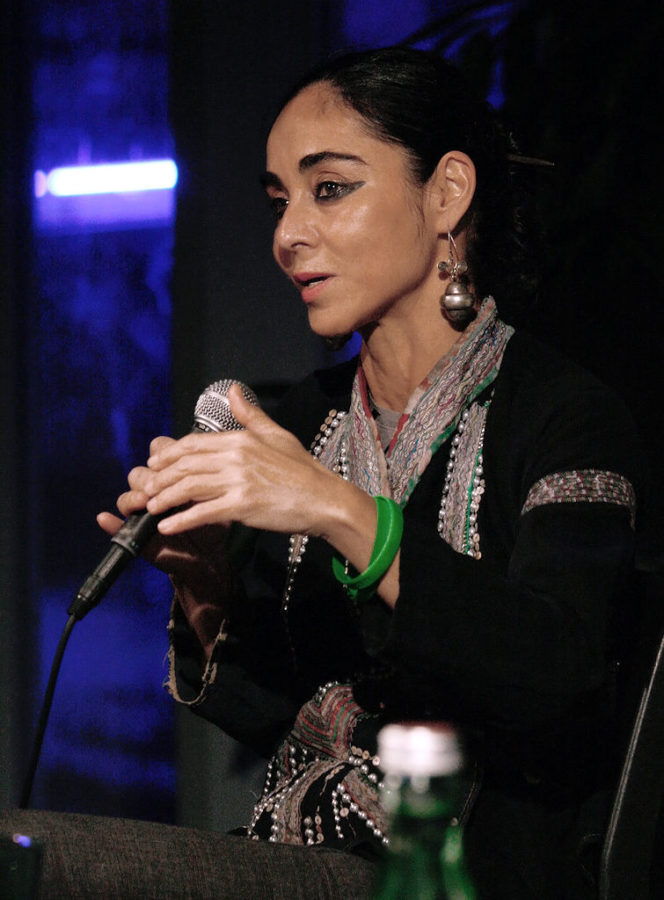Film screening to kick off Womxn’s History Month celebration
Shirin Neshat at an open discussion about her film Zanan bedun-e mardan “Women Without Men” during the Vienna International Film Festival 2009.
February 25, 2020
Kick off Womxn’s History Month with a film screening at the Margaret Sloss Center for Women and Gender Equity.
On Thursday, the Women’s Center, in cooperation with the Office of Multicultural Student Affairs, will be presenting a screening of Shirin Neshat’s “Expressing the Inexpressible” from 3-5 p.m. at the Women’s Center.
This event is the kick-starter for the 2020 Womxn’s History Month celebration at Iowa State. Coming off the cuffs of Black History Month, the Sloss Center seized the opportunity to combine the two historic months with this event, highlighting a womxn of color’s work within the fine arts.
Womxn’s History Month was first started as a local celebration in Santa Rosa, California, according to the National Women’s History Museum website.
“The Education Task Force of the Sonoma County (California) Commission on the Status of Women planned and executed a “Women’s History Week” celebration in 1978,” according to the museum’s website. “The organizers selected the week of March 8 to correspond with International Women’s Day. The movement spread across the country as other communities initiated their own Women’s History Week celebrations the following year.”
Womxn’s History Week persisted until 1987, when it was finally dubbed Womxn’s History Month after Congress passed Public Law 100-9. From then on, every president since 1995 has declared March as Womxn’s History Month.
Neshat, a filmmaker, video artist and photographer, was born in Iran in 1957. Her work incorporates the impact of the Muslim culture on women, diving into the different social, psychological and political factors that mold the experiences of those women and the many gender conflicts they face.
In 1997, Neshat’s film “Turbulent” won the 48th Venice Biennial prize. This film shows the contrast between a man and a woman performing, the man to an all male audience and the woman to no audience at all, according to the National Museum of Women in the Arts’ website.
“Turbulent” is included in this program, along with four other videos she has produced, and her first ever series of photographs, “The Women of Allah,” according to the Films Media Group website.

















